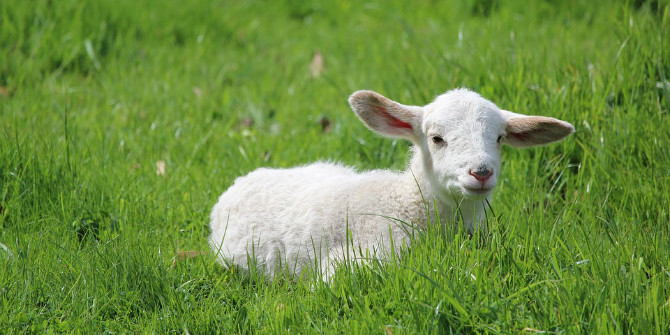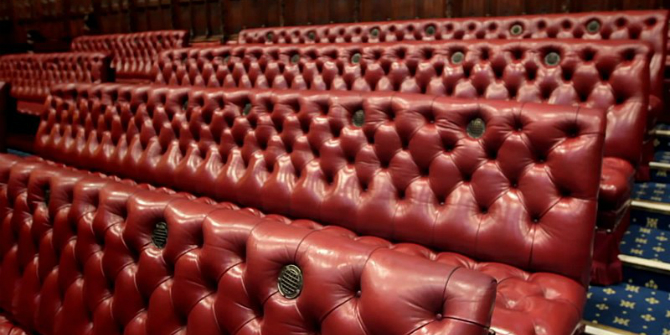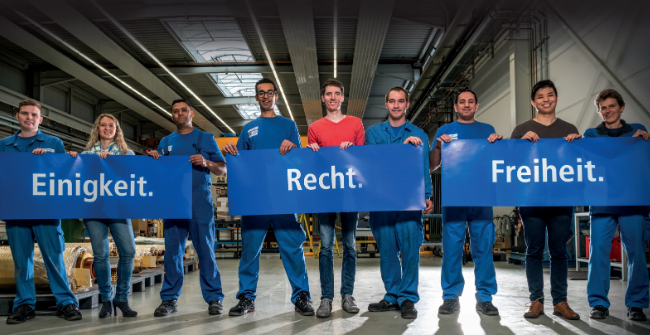 Great Britain has a proud history of animal protection. UK animal welfare institutions and laws have been emulated throughout the world. As a member of the EU, the UK has used its economic and political clout to ban veal crates, barren battery cages and regulate sow stalls across a market of 510 million people. Parliament should reject Brexit and call for a People’s Vote for animals, writes Steven McCulloch (Winchester).
Great Britain has a proud history of animal protection. UK animal welfare institutions and laws have been emulated throughout the world. As a member of the EU, the UK has used its economic and political clout to ban veal crates, barren battery cages and regulate sow stalls across a market of 510 million people. Parliament should reject Brexit and call for a People’s Vote for animals, writes Steven McCulloch (Winchester).
In the Political Kaleidoscope of Brexit, I have discussed how Brexit will impact sentient animals far more than it does humans. Animals are considered as property in law and traded as commodities. Brexit represents major changes in trade relationships with the potential for massive impacts on sentient commodities. In the UK our population of around 67 million slaughters one billion farm animals annually.
Of our 650 Members of Parliament, none are elected to represent the interests of nonhumans. The Mother of all Parliaments effectively excludes the interests of a billion sentient animals. Given this, Parliament as a whole must consider carefully the impact of Brexit for sentient animals in the UK, EU and internationally. It is in this context that I write this article as Parliament debates Brexit.
Boris Johnson has claimed in The Sun that the Prime Minister’s deal is a betrayal of those that voted for Brexit to enable the UK to prohibit the live transport of farm animals.
Our hopes of ending the barbaric trade of sending live animals abroad for slaughter will almost certainly be dashed by the appalling sell-out Brexit deal https://t.co/bcIAH88Bbh
— Boris Johnson (@BorisJohnson) November 24, 2018
Johnson’s claim about whether the UK can prohibit live animal transport is largely correct. In the Withdrawal Agreement, the UK continues regulatory alignment with the EU for goods, including livestock. Prior to Brexit, the UK could not prohibit the live transport of animals within the single market. In May’s post-Brexit world, the UK cannot prohibit live animal transport based on the same principle. For this reason, Compassion in World Farming is lobbying for a minor amendment in the Withdrawal Agreement that would permit the UK to prohibit live exports.
I agree that the transport of live calves and sheep is an abhorrent practice. The problem with Johnson’s position, however, is twofold. First, whilst calls for the prohibition of live animal transport are laudable, banning the trade is far from certain. The UK farming industry was always going to oppose complete prohibition, and the UK government has already started backtracking in recent months.
More importantly, there is a glaring problem with Boris Johnson’s position. Put simply, Johnson’s hard Brexit will cause animal welfare problems of a far greater order than live animal transport, even if the trade was completely banned. Focusing on live animal transport might appeal to those that favour a hard Brexit. However, we must look at Brexit in the round to assess how it will affect sentient animals, all things considered.
Brexit is a massive political event that will have impacts on animal protection in the UK, the EU and internationally. The major threat that Brexit poses to animal protection is the importation of agricultural products raised and slaughtered to lower welfare standards. In this context, a recent tweet by David Davies, the former Brexit Secretary, is worrying. His tweet clearly shows how hard Brexiteers on the right of the Conservative Party wish to strike trade deals in agricultural products with the US.
Earlier I had useful discussions at the US Department of Agriculture. An amazing building, built in the Great Depression. It’s the 3rd largest government building, put up in a hurry on plans based on Leavenworth prison. Very long corridors, you can walk on a 2.3 mile round trip! pic.twitter.com/8YXISZN7qR
— David Davis (@DavidDavisMP) November 16, 2018
Davies is campaigning for a Canada-plus arrangement that allows the UK to have a free trade deal with the US. The political reality of David Davies proudly tweeting about the United States Department of Agriculture will fill anyone with knowledge of the large disparity between EU and US animal protection standards with dread. In the US there is no federal legislation prohibiting calf crates, barren battery cages or sow stalls. Nine of the 50 US states have banned one or more of these extreme confinement systems. This means that millions of US calves, chickens and pigs are kept in highly intensive conditions that do not meet their welfare needs for most of their lives.
To make matters worse, in contrast to the EU’s Council Directive 98/58/EC on the protection of animals kept for farming purposes, there are no general federal on farm laws to protect animals in the US. Of the 10 billion farm animals raised and slaughtered annually in the US, around 95% of these are broiler meat chickens. Intensively raised fast-growing US broilers have been genetically selected to grow so rapidly that they succumb to severe lameness and heart attacks. The US Humane Slaughter Act 1958 requires that animals are stunned prior to slaughter, with exemptions for religious communities. Despite this, the Act does not cover chickens, turkeys and other birds. So, the key US federal slaughter law does not apply to the 9.5 billion or so chickens killed for consumption annually.
In a similar way, the US Animal Welfare Act, signed into law in 1966, excludes the majority of animals used for experimental purposes. The Act excludes cold-blooded animals (including fish) and rats of the genus Rattus and mice of the genus Mus. Hence, the Act excludes fish, mice and rats, which are the most commonly used species. Under The Animal Enterprise Terrorism Act, animal rights campaigners that cause economic loss to animal use industries can be prosecuted as terrorists. Similarly, many states have so-called ‘Ag-Gag’ laws that prevent whistleblowers from speaking out against animal cruelty and related issues such as food safety.
The US Department of Agriculture is reminiscent of Orwell’s Animal Farm and 1984 rolled into one. The government department provides the bureaucracy to administer federal animal protection laws, where the key regulations do not cover the majority of animals used in those sectors. What about chlorinated chicken and hormone beef, which have both regularly featured in the news? This video of the libertarian Conservative MEP Daniel Hannan speaking at the US-based Atlas Network to promote free trade is worth listening to on this issue.
Here's Daniel Hannan giving the toast at the 'Atlas Networks Freedom Dinner' last year….gives you a glimpse of what they have in store for the unwary 'poor' who voted for Brexit….. pic.twitter.com/VPW9xJYPUT
— Brexitshambles (@brexit_sham) December 1, 2018
Dan Hannan has been labelled as the brains behind Brexit. In the video, Hannan refers to the development of Gallus gallus domesticus from a by-product of the egg industry to be selected as a meat chicken to produce protein for the masses. Hannan goes on to refer to the ban on chlorinated chicken in the EU as how ‘protectionism works’. The MEP doesn’t describe the reasons why the US poultry industry routinely chlorine washes its chickens, which is to reduce the high bacterial loads resulting from raising them in extremely poor conditions.
Like a good guest, Hannan thanks his hosts for the hormone beef that he has been served at dinner. He quips how the same beef, which contains ‘the wrong type of hormones’, is banned in the EU for being harmful for human health. He doesn’t explain how injecting cattle with synthetic growth hormones is detrimental to their welfare as well as being judged a significant risk of causing cancer by the EU. If there is any doubt about his support for importing chlorine chicken and hormone beef, Hannan pronounces:
And one of the things that I hope will happen after the UK leaves the EU and develops its own trade policy is that we will scrap all of these absurd restrictions that prevent our consumers making a choice about what it is that they would want to eat.
Hannan doesn’t describe how the agricultural industry will fight tooth and nail to prevent the clear and accurate labelling of such products.
Finally, The Sunday Times has reported how ‘Michael Gove pledges genetic food revolution’. Indeed, Gove’s own statement follows on nicely from Daniel Hannan’s tale of the broiler chicken, Gallus gallus domesticus:
Gene editing allows us to give mother nature a helping hand, to accelerate the process of evolution in a way which can significantly increase yield and also reduce our reliance on chemicals and other input. There is a potential there for Britain and our scientists and our farmers to lead the way.
Intensive farming has pushed sentient animals beyond their limits. Meat chickens suffer from lameness and heart attacks; laying hens suffer from osteoporosis and fractures; pigs suffer from extreme confinement, mutilations and fighting; and dairy cows suffer from lameness and mastitis.
The EU legislates against extremes of intensive farming. Gene editing is prohibited in the EU for good reason. The last thing farm animals want is a helping hand to accelerate evolution to increase yield. It is deeply worrying that the Defra Secretary isn’t following consensus of animal welfare science and leading NGOs in this context. Campaign groups like Compassion in World Farming are strongly opposed to gene editing in animals. Genetic modification represents a move away from the precautionary principle of the EU to the profit principle of US agribusiness and big pharma. Is this what the British people really voted for in the referendum?

Parliament will debate Theresa May’s Withdrawal Agreement and ultimately vote whether or not to implement Brexit. Theresa May’s deal effectively keeps farm animals in the single market. Perhaps one could argue that voting against her Withdrawal Agreement might make the hard Brexit discussed above more likely.
There is, however, something that stinks like a decomposing rat about Brexit. In an excellent video, the English writer and actor Stephen Fry points to the problem of forced perspective and deceptive framing. Such forced perspective and deceptive framing has been used in the debate on Brexit and animal protection. Brexit poses major threats to animal protection. These threats are orders of magnitude greater than any single animal protection issue such as live animal transport or the import and sale of foie gras.
I have described above the political reality that influential Conservative politicians desire to strike trade deals with the US. The US is something like 30-50 years behind the UK on animal welfare. Such deals, or falling back on WTO rules, have been described by the RSPCA’s David Bowles as catastrophic for animal welfare.
Even in the event of a softer Brexit encapsulated by May’s deal, the UK will lose its substantial influence to reform animal protection in the EU. After writing on Brexit and animal protection over the summer, I have come to think that the loss of political influence in the EU could as big a risk as importing lower welfare agricultural products. Brexit will make our society poorer. It is often said that Brexit will hit the worst off in society hardest. However, it is often forgotten that it is not humans that are worst off in society, but sentient animals.
Parliament should reject Brexit. Parliament should call for a People’s Vote. Parliament should call for a People’s Vote for Animals.
This article gives the views of the author(s), and not the position of LSE Brexit, nor of the London School of Economics and Political Science.







All I know is that Ramsgate Council implemented a ban on the export of live animals (after the deaths of more than 40 sheep). The ban was deemed to be against EU law and Thanet Council ratepayers had to pay out compensation of £2.3m.
Thanet District Council did try to ban the export of live animals and the cash strapped council was forced to pay compensation of £2.3million just as Teejay saysAs far as I am concerned the people of Thanet were right to have made a fuss which was supported,our very good hard working Conservative MP for South Thanet. So much for ghastly set up of the EU
Excellent post. I’d like to add the fact that trade wonks have pointed out that live animal transport is founded in WTO agreements and thus likely to go on even after Brexit
What a shoddy,biased peice of junk.
. In the Withdrawal Agreement, the UK continues regulatory alignment with the EU for goods, including livestock. Prior to Brexit, the UK could not prohibit the live transport of animals within the single market. In May’s post-Brexit world, the UK cannot prohibit live animal transport based on the same principle. For this reason, Compassion in World Farming is lobbying for a minor amendment in the Withdrawal Agreement that would permit the UK to prohibit live exports.’
So we have no way of stopping the live transportation as part of the eu.. and if we keep regulatory alighnment with them after leaving we cant stop it either. So you recommend that we stay in the organisation as the solution?? Bizarre